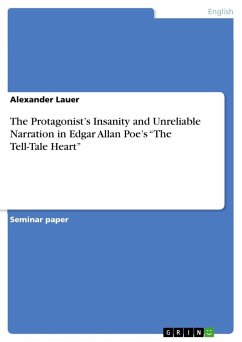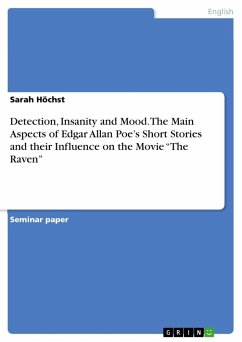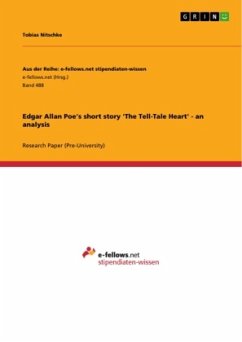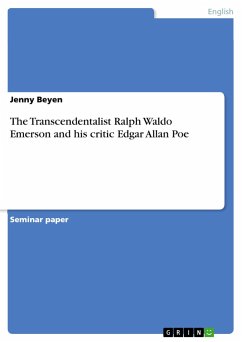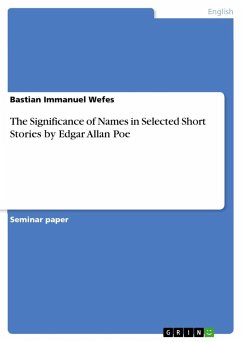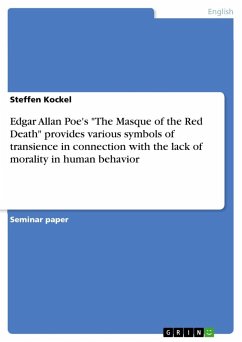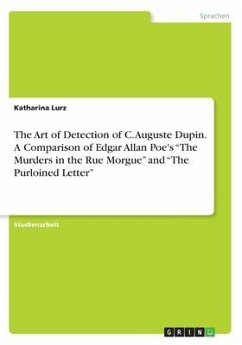
Is there an unreliable narrator in Edgar Allan Poe's "The Tell-Tale Heart"?

PAYBACK Punkte
0 °P sammeln!
Essay from the year 2007 in the subject English Language and Literature Studies - Literature, grade: 1,3, Ruhr-University of Bochum, language: English, abstract: Edgar Allan Poe's short story "The Tell-Tale Heart" is not a "whodunit - we know right from the start who the murderer is." (Benfey 29). The narrator describes in detail how he prepares and commits the murder of an old man, he lives together with. All of the time he "bases his plea upon the assumption that madness is incompatible with systematic action" (Robinson 94) and emphasises that he is not mad. "His plot is motiveless" (Hoffman...
Essay from the year 2007 in the subject English Language and Literature Studies - Literature, grade: 1,3, Ruhr-University of Bochum, language: English, abstract: Edgar Allan Poe's short story "The Tell-Tale Heart" is not a "whodunit - we know right from the start who the murderer is." (Benfey 29). The narrator describes in detail how he prepares and commits the murder of an old man, he lives together with. All of the time he "bases his plea upon the assumption that madness is incompatible with systematic action" (Robinson 94) and emphasises that he is not mad. "His plot is motiveless" (Hoffman 227), he only murders the old man because of his "Evil Eye" (Poe 278) and hides his dismembered body under the roofs of his room. After that he welcomes three police officers in the house and allows them to search the house. He still feels safe because he has perfectly hidden all indications for the deed. But then his own madness makes him go crazy, he thinks to hear the beating of the old mans heart so loud that it will betray him and finally he makes a confession of the murder. The reader does not get to know much about the narrator of this story, he never learns his name, his job, in what town he lives (Benfey 32). There are various texts which try to explain this or the narrators trains of thought. This paper is meant to analyse the general kind of narrator, if there is an unreliable narrator or not and find proofs for the assumptions made.




